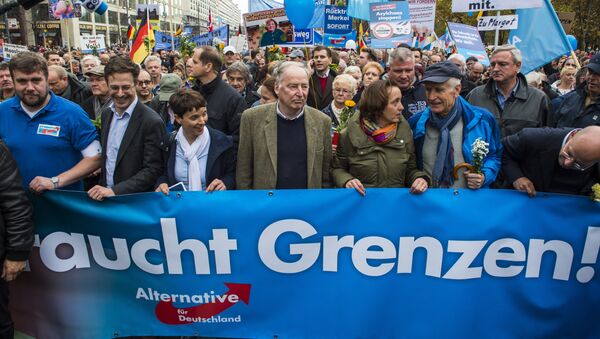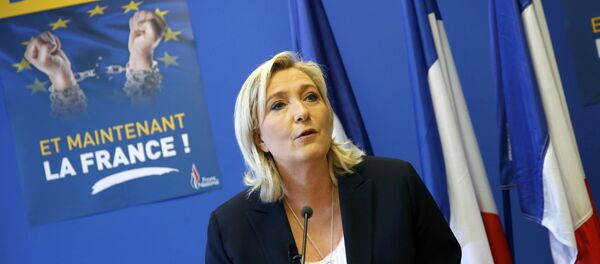AfD, a new political party that was founded just over three years ago, took 21.9% of the vote in Sunday's elections, with Merkel's Christian Democratic Union (CDU) falling to third place, with 19% of the vote, behind AfD and the ruling Social Democrats (SPD), who won 30%. The CDU result is down 4% from the 23% it secured in 2011, with the Social Democrats also down, by 5%, compared to the 35.6% they received in 2011. The far-left Die Linke Party finished fourth, with 12.9% of the vote, down from the 18.4% they received in 2011.
Commenting on Sunday's showing, Leif-Erik Holm, the leader of AfD in Mecklenburg-Western Pomerania, jubilantly described his election result as "perhaps…the beginning of the end of Merkel's chancellorship."
The Christian Democrats' response was, predictably, one of huge disappointment. Nevertheless, Vincent Kokert, the head of the CDU faction in the regional assembly, the Landtag, said that his party would not give up. "AfD should not celebrate so much. We've seen others who came up quickly and went back down even faster. Sufficie it to recall the Schill Party," Kokert said, referring to a right-wing populist party active in Hamburg between 2000 and 2003.
For their part, the ruling Social Democrats, despite managing to maintain their plurality in the region, were also shocked by the AfD's ability to garner such a large percentage of the vote. Speaking to Sputnik, Mathias Brodkorb, SPD politician and the region's education minister, emphasized that anger over Merkel's immigration policy was the main reason for AfD's electoral rise.
Ultimately, Brodkorb suggested that Merkel and the CDU should not be surprised at their poor showing, given their failure to take account of the needs and experiences of the people.
However, some CDU officials remain defiant. CDU member and regional Minister of Justice Uta-Maria Kuder said that while she was disappointed, she also felt that "we did a good job," with the migrant issue unfortunately casting a shadow over the entire campaign. Overall, Kuder insisted that "Merkel has done the right thing."
Meanwhile, asked by Sputnik about whether AfD has any plans to field a candidate in next year's federal election, Alexander Gauland, the party's co-founder and party leader in the state of Brandenburg, emphasized that it's "too early" for that. "If you nominate a candidate, you must have a chance of winning. We have not reached that level yet," the politician humbly noted.
At the same time, Gauland added that the party is thrilled by the results in Mecklenburg-Western Pomerania, even if it didn't manage to defeat the ruling SPD. "There cannot even be any question of any disappointment. We have existed for three years. We have defeated the Chancellor in her home region. We have every reason to be happy."
Sunday's results are expected to translate into 26 seats for the SPD, 18 for AfD, 16 for Merkel's SDU, and 11 for Die Linke.




